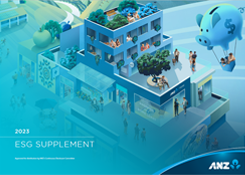Fraud protection.
Now it’s personal.
ANZ Falcon® technology monitors millions of transactions every day to help keep you safe from fraud.
Falcon® is a registered trademark of Fair Isaac Corporation.
This site uses cookies
ANZ’s website uses cookies for a better browsing experience. Find out more on how we use cookies and how you can manage your settings.

Fraud protection.
Now it’s personal.
ANZ Falcon® technology monitors millions of transactions every day to help keep you safe from fraud.
Falcon® is a registered trademark of Fair Isaac Corporation.
Log in
Explore more
We seek to assess and manage the impacts of our lending decisions through the application of our Social and Environmental Risk Policy (the Policy) and accompanying ‘sensitive sector’ requirements.
Our Social and Environmental Risk Policy and Screening Tool set out the social and environmental standards and due diligence processes applicable to our large business customers. For more information on our sensitive sector requirements, click on the sector name below:
We are committed to working with customers that support social and environmental sustainability in their approach. We recognise that one of the most valuable contributions we can make, is to inform and work with our customers to understand risks and opportunities posed by their operations and to manage their social and environmental impacts. This can include the effect of their operations on human rights, biodiversity, cultural heritage, indigenous rights, health and safety, governance and environmental sustainability.
The Policy outlines the social and environmental factors to be taken into account by our bankers when considering large business transactions1. It incorporates our approach to human rights, including our ‘zero tolerance’ for land acquisition and involuntary resettlement that we consider improper, as well as labour rights issues such as modern slavery.
We review the Policy at least every three years, with oversight from our Ethics and Responsible Business Committee to ensure it remains fit-for-purpose. The review takes into account changes to customer practices, international standards, emerging social and environmental issues, and stakeholder feedback.

Prior to entering into a relationship with a large business customer2 or entering into any new material transaction, bankers are expected to consider the customer's management of its material social and environmental issues and any associated potential impacts. Bankers must also consider the customer’s history of, and approach to dealing with, any potential (or historical) impacts.
Under our credit policy, we review our large business customers at least annually. This includes the consideration of issues specified in our Social and Environmental Risk Policy and, where relevant, sensitive sector Requirements. We expect our customers in all sectors to implement appropriate stakeholder engagement strategies and plans, and we have included this consideration in the Social and Environmental Risk screening tool.
We monitor certain social and environmental risks of our large business customers each month through reports from our ‘Reputation Risk Radar’ service. We also rely on regular dialogue between relationship managers and their customers to alert us to issues. Notable incidents and allegations are referred, where appropriate, to our risk management forums in which social, environmental and credit risks are considered.
Where a customer’s practices may not be consistent with our policies, we work with them to understand the circumstances and, where necessary, encourage them to identify specific and time-bound improvement plans. If customers are unwilling to adapt their practices in an appropriate timeframe, we may decline further financing or exit the relationship.
Educating employees on our policies and standards and how they are applied in practice is important for the effective management of the social and environmental risks associated with lending to our large business customers.
Our training focuses on the Policy, Requirements for 'sensitive sectors' and our approach to human rights. This training is mandatory for new employees authorised to make credit decisions relating to large business customer transactions. Guidance is also provided on identifying and escalating potential issues to the Ethics and Responsible Business Committee, which examines customer proposals that may significantly impact our reputation with stakeholders.


This report provides detailed information on ANZ's focus on bringing our purpose to life through helping tackle significant societal challenges that are core to our business strategy and matter to society.
1. Transactions involving our Institutional and Corporate customers.
2. Institutional and Corporate customers.


